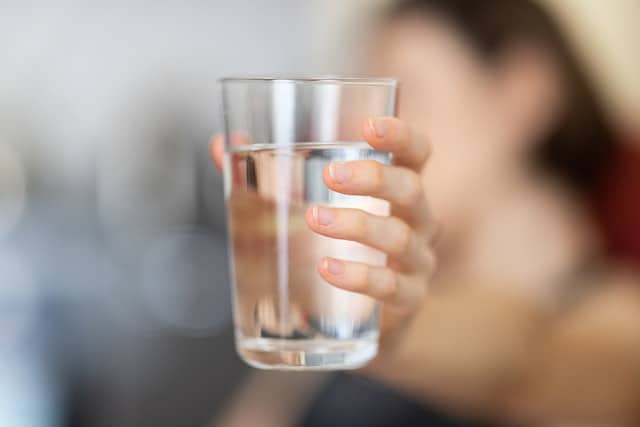SPRING HILL, Florida – If you feel a sharp pain in your back, side, lower abdomen, or groin, or have blood in your urine, you may have a kidney stone – a condition that is common and on the rise. Left untreated, kidney stones can cause serious complications in addition to severe pain. Nabeel Hamoui, M.D. a Urologist with Shoreline Urocare, is making sure patients know timely treatment can prevent permanent damage.
Kidney stones are hard, pebble-like pieces of material that form in one or both of your kidneys when high levels of certain minerals are in your urine. Kidney stones vary in size and shape – as small as a grain of sand or as large as a pea and rarely, as big as golf balls.
A small kidney stone may pass through your urinary tract on its own, causing little or no pain or other symptoms. A larger kidney stone may get stuck along the way and block the flow of urine. If kidney stones are not treated, they can cause blood in the urine; severe pain; urinary tract infections (UTIs), including kidney infections; and loss of kidney function.
“Kidney stones can be extremely painful and debilitating. Fortunately, there are many minimally invasive ways to treat them, most of which can be done on an outpatient basis with minimal to no recovery time”, said Dr. Hamoui. “One thing I always advise my patients to do is to seek prompt care and testing. Delaying care can result in worsening pain, infection and long-term kidney damage.”
The National Kidney Foundation reports that over half a million people go to emergency rooms for kidney stone problems every year. And it is estimated that one in ten people will have a kidney stone at some time in their lives.
If you have a family history of kidney stones, you are more likely to develop them. You are also more likely to develop kidney stones again if you’ve had them once, have high blood pressure, diabetes or obesity or if you don’t drink enough liquids.
“To diagnose kidney stones, we mainly rely on CT scans which are highly effective at diagnosing kidney stones. The CT can also give us information that will help us determine if we can treat these stones with medicines to help them pass or if we need to do surgery,” said Dr. Hamoui. “Once we treat the stones, we then work on stone prevention by encouraging increased fluid intake and dietary changes which can usually help prevent the vast majority of stone recurrences.”
Four dietary tips from the National Kidney Foundation can help you prevent painful kidney stones.
·Drink plenty of fluids when exercising and sweating. Sweat water loss leads to less urine production, allowing stone-causing minerals to settle and bond in the kidneys and urinary tract.
·Eat and drink calcium and oxalate-rich foods together during a meal to make it more likely they will bind to one another in the stomach and intestines before the kidneys begin processing. High levels of oxalate are found in peanuts, rhubarb, spinach, beets, chocolate and sweet potatoes.
·Maintain your calcium intake but cut back on sodium. A diet low in calcium increases your risk of developing kidney stones.
·Eat more fruits and vegetables and less animal-based protein to help decrease urine acidity which can reduce the chance for stone formation.
If you suspect you may have a kidney stone, contact a urologist or your primary care physician. If you need help finding a physician, call (352) 666-6325 for a physician referral or visit BayfrontSpringHill.com/urology-services to be connected with a qualified urologist or BayfrontMedicalGroup.com for qualified primary care physicians.
*Nabeel Hamoui, M.D. is an independent member of the medical staff at Bayfront Health Spring Hill
SOURCES
National Institute of Diabetes and Digestive and Kidney Diseases:
·[1] U.S. Department of Health and Human Services. Chapter 9: Urinary tract stones. In: Litwin MS, Saigal CS, eds. Urologic diseases in America. www.niddk.nih.gov (PDF, 0.39 MB) . Published 2012. Accessed September 26, 2016.
·https://www.niddk.nih.gov/health-information/urologic-diseases/kidney-stones
National Kidney Foundation:
·[2] https://www.kidney.org/atoz/kidneystones

